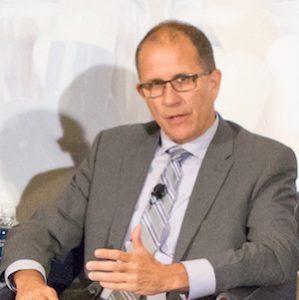Drug Importation in Connecticut: An Overview

Synopsis:
The Connecticut legislature has not yet advanced bills that have been introduced to legalized importation of drugs from Canada. However, in 2019 the state budgeted funds for the Department of Consumer Protection to hire a project manager to submit a request for approval for a Canadian Prescription Drug Importation Program to the federal Secretary of Health and Human Services.
Current status:
Budget documents indicate that Connecticut will be submitting an importation plan to the Department of Health and Human Services in 2020 or 2021.
How should we evaluate this program?
The program hasn't started yet, or even been designed, so there's no way to measure whether it saved money or kept patients safe, both promises made at the time of passage. However, the 2003 Medicare Modernization Act contains requirements for safety requirements built into any such program.
Official actions and statements
Connecticut has made no official statements regarding importation.
Background / resources
Learn more about
- The Drug Importation Debate
- Fake Medicine in Connecticut
- The Importance of U.S. Closed Drug Supply Chain
Testimony Opposing Importation
- Testimony of Shabbir Imber Safdar, PSM Executive Director at Connecticut's Health Care Affordability Informational Forum, November 14, 2019
Op-eds from the Experts
In a January 23, 2019 editorial published in The Hill Peter Pitts, a former FDA associate commissioner and the president of the Center for Medicine in the Public Interest, explains why the safety risks of importation far outweigh any savings.
In this editorial, which was published in The Salt Lake Tribune on December 10, 2018, former DEA agents Javier Peña and Steve Murphy, warn that importing prescription drugs from other countries is “an extremely risky enterprise with potentially tragic consequences.”
In this editorial, which appeared in Inside Sources on November 20, 2018, former chief superintendent of the Ontario Provincial Police Don Bell discusses the threat that gang-backed fentanyl trafficking poses to the U.S. and Canada, and emphasizes the importance of working together to secure the border.
The Partnership for Safe Medicines applauds the passage of the SUPPORT Act, an $8 billion package which will help develop non-addictive painkillers, improve prescription drug monitoring programs, establish comprehensive opioid recovery centers, and strengthen Customs and Border Protection’s ability to intercept fentanyl that is illegally shipped into the United States.
In this October 16, 2018 for Drug Topics, Alliance of Safe Online Pharmacies advisor Libby Baney and pharmacist and American Pharmacists Association CEO Thomas Menighan discuss the risks to public safety posed by drug importation.
There are certainly things we can learn from other countries’ healthcare successes, but importation is not the right approach.
This distressing situation shows that deadly fentanyl analogues are killing Americans who are using laced non-opioid prescriptions.
In this August 21, 2018 editorial for the Havre Daily News Canada Border Services Agency and the Ontario Provincial Police veteran Don Bell talks about the need for Canada and the United States to work together to combat counterfeit drugs.
On August 8, 2018, the National Sheriffs’ Association wrote the President to oppose prescription drug importation. Importing drugs from other countries, they say, “jeopardizes law enforcement’s ability to protect the public health and endangers the safety of law enforcement and other first responders.”
As a licensed pharmacist, I’m all too familiar with patients’ difficulties getting medications they need and their physician has prescribed. As baby boomers age, pharmacists see more patients at our counters unable to obtain needed treatments for heart disease, high blood pressure, diabetes, and other chronic illnesses. This issue is now being acknowledged and a healthy debate has begun over possible solutions. But one idea policymakers shouldn’t pursue is opening up our country’s secure drug supply to medicines coming from outside our borders.








